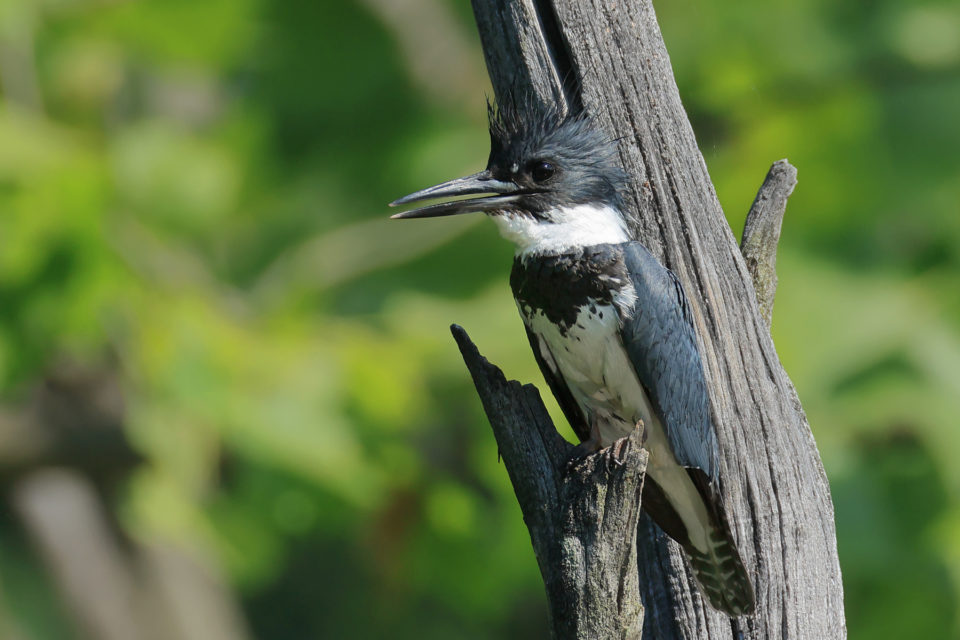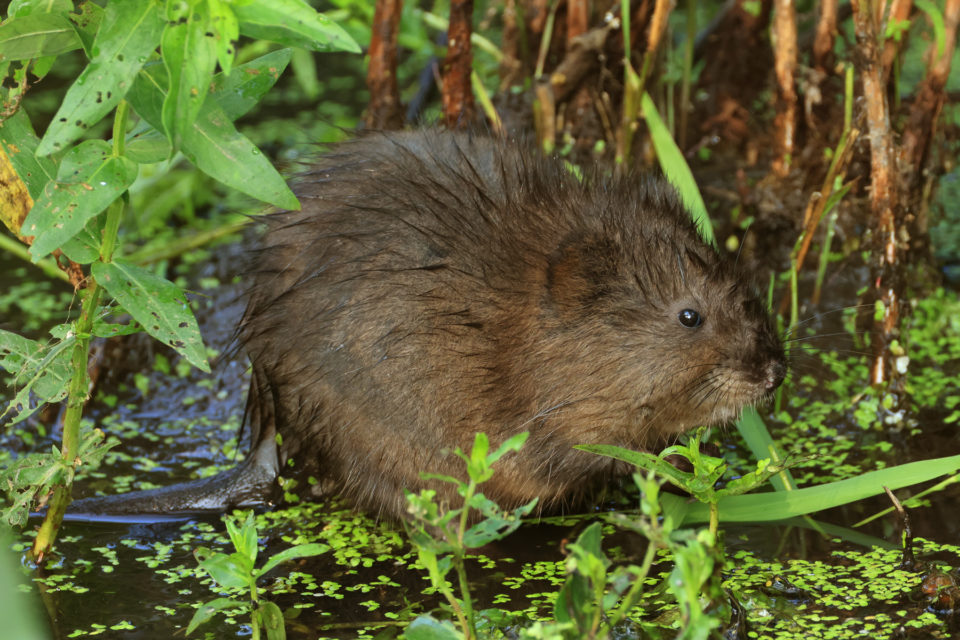Kiva Nice-Webb is an ordained minister in Central District Conference. She currently serves as the campus minister for retreats at Villanova University in Pennsylvania. The following is a reflection from the first week of summer camp 2024, with the high school youth.
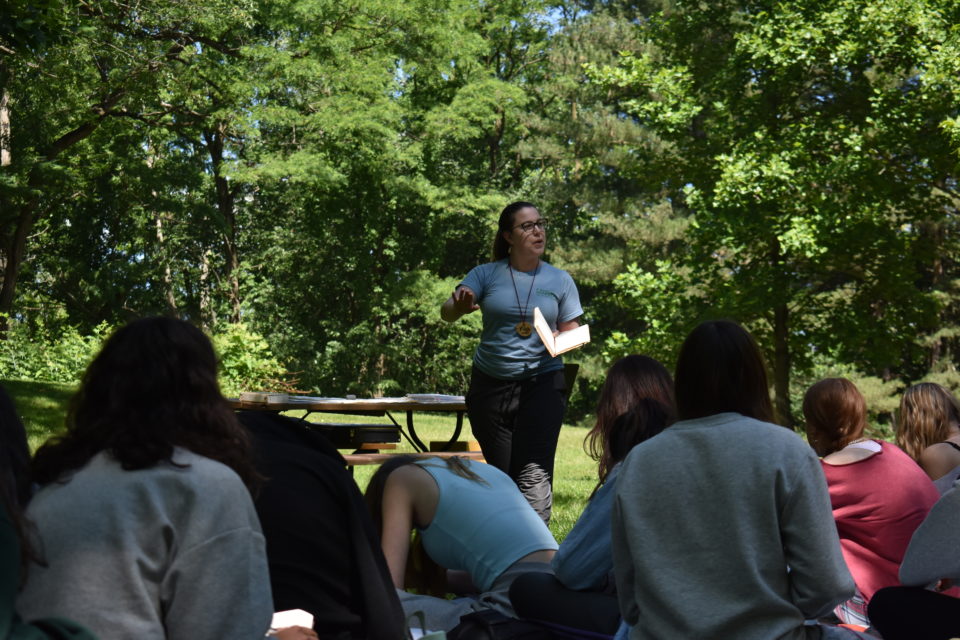
My week serving as camp pastor this year at the Peaceful Woods was my first time seeing Camp Friedenswald in its busiest season. I didn’t grow up attending Friedenswald as a camper, and had only been to their beautiful grounds for Central District Conference committee meetings in the past. In some sense, I was seeing camp through new eyes, in a different season with a different role. From working in college campus ministry and retreats in my day job, I knew that as much preparation and hard work goes into planning a week of camp, that God would show up in unexpected and unplanned ways as long as we all kept our eyes open.
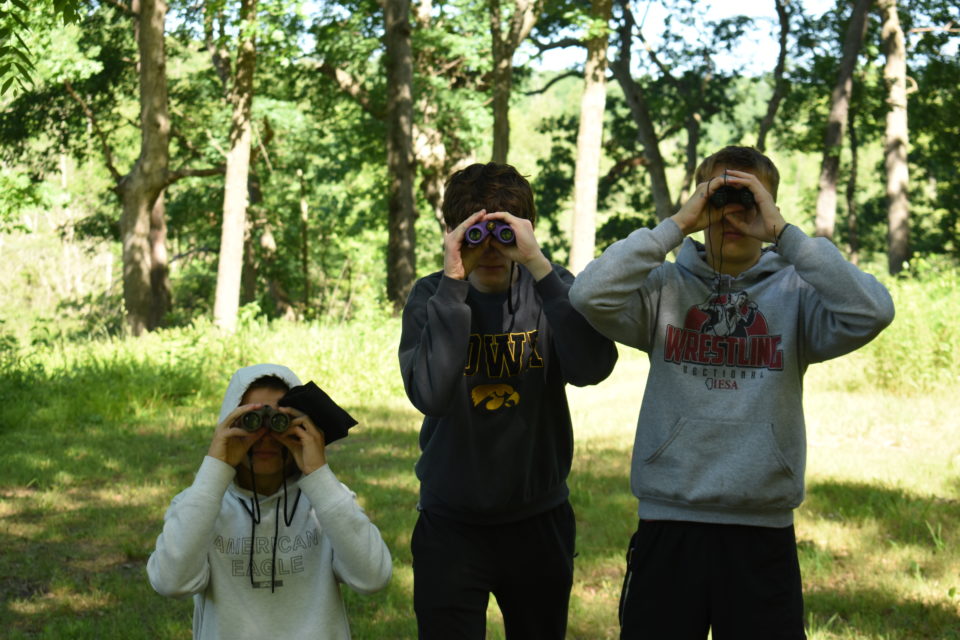
So, when I introduced my role to the campers on the first day, I invited the campers to keep their eyes open for where God was moving at camp that week, and told them my role was to pay attention right alongside them. The theme for this summer was “Animal Kin-dom,” exploring God’s vision for humans and other animals as one of kinship and mutual care. We were looking at right relationship with all created beings, and at how our animal siblings could reveal God to us, if we paid attention and valued them as fellow bearers of the sacred.
In a daily Bible study time, we explored some difficult biblical texts on this topic, from the Genesis 1 creation story where each creation is called good by God, to the flood and Noah’s ark, to Sabbath laws encouraging rest for humans and animals alike, to the peaceable kingdom vision given to Isaiah, and even a story of conflict and reconciliation from the life of Saint Francis of Assisi. What I was struck by in each session where we delved into complicated and sometimes troubling texts was the earnest and insightful questions asked by campers and counselors alike. Like Jacob wrestling with the angel, together we looked honestly at the despair caused by climate change and human greed, and waited expectantly for hope that felt grounded in reality. We wondered whether right relationship with animals was aspirational or possible, and what it might require of us. What might each of us want to ask God about these texts, in light of our current reality?
Beyond asking questions of scripture, each day the campers focused on a different animal that called Camp Friedenswald home. So, I decided to try it too, as my own spiritual practice for the week. As I walked trails and sat under trees and by the various bodies of water on the grounds, I also kept my eyes open for these animal siblings with whom we shared space. I noticed that if I was looking for animals, I quickly found them, chipmunks and squirrels, snakes and frogs, assortments of insects and arachnids and too many birds to count. What I also noticed was that paying attention to and honoring the animal siblings around me as part of the beloved community made me slow down significantly. When I walked too briskly into the woods, animals scattered and startled around me in fear. When I slowed my pace, the animals were less threatened by my joining them in enjoying spaces.
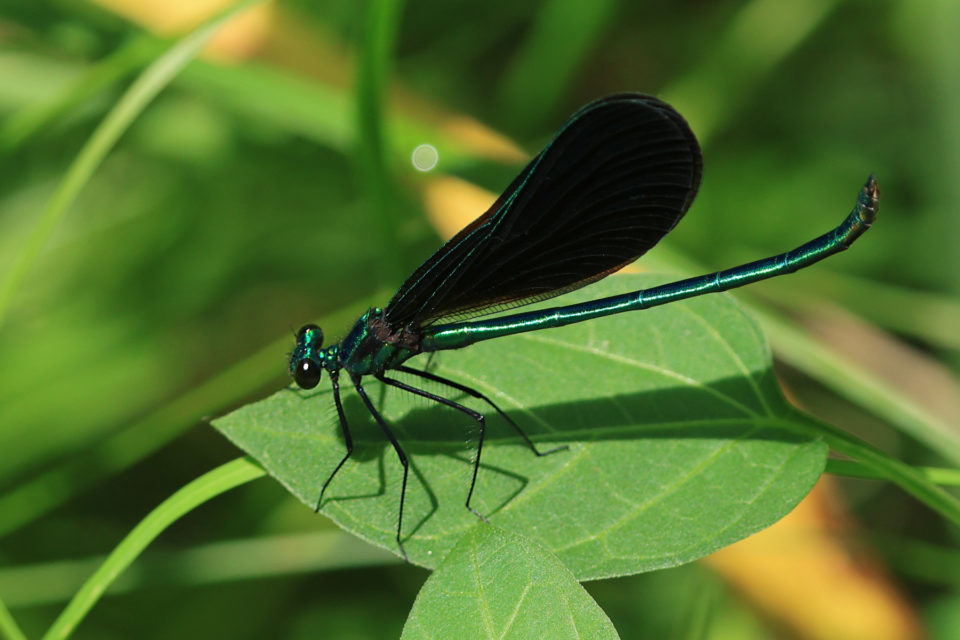
One afternoon, I went to sit in the sun by the lake, and noticed a snake startled from its warming spot in the path and felt a strange kinship with the snake, as we both were enjoying the restful warmth of the afternoon sun. I stayed still in a field long enough to watch a mother rabbit and her baby happily nibbling some grass and wondered at the care the mother gave to its young one. I pondered one day’s events by the fen long enough for a dragonfly to land on my arm and rest for a spell, allowing it a space to rest rather than quickly brushing it off my arm as an intruder, noticing how intricate its designs were and marveling at God’s creativity. Like the questions from the campers, these animal siblings were teaching me about the nature of the God who created, redeemed, and sustains all of us, despite our own missteps. How might I rest like the snake, care for others like the mother rabbit, or vulnerably display my created uniqueness like the dragonfly?
Again and again I found myself entering into what poet Wendell Berry calls “the peace of wild things.” If sin can be understood as separation or distancing from God, the immersion into proximity and intentional relationship with such a variety of God’s beloveds (both human and non-human) is surely a pathway towards the healing of God’s salvation.
The beauty of camp is that like Isaiah’s vision of the peaceable kingdom, Camp Friedenswald offers a vision of life lived fully in the moment, with eyes wide open to how God is moving, in people, in scripture, in songs, in animal siblings, and in the land itself. Camp offers a taste of joy to a sorrowful and exhausted world, through being silly with each other and running around playing and singing funny songs with gusto; it offers a depth of intentionality to a busy and distracted world, from considering food waste to land acknowledgements to how even bugs might be part of the beloved community; and it offers a time set apart from the hectic pace of the modern world, for campers, counselors, and even camp pastors, time to consider how we might want to more faithfully re-enter society after we are transformed by encountering God through everyone and everything around us during our time in the Peaceful Woods.
